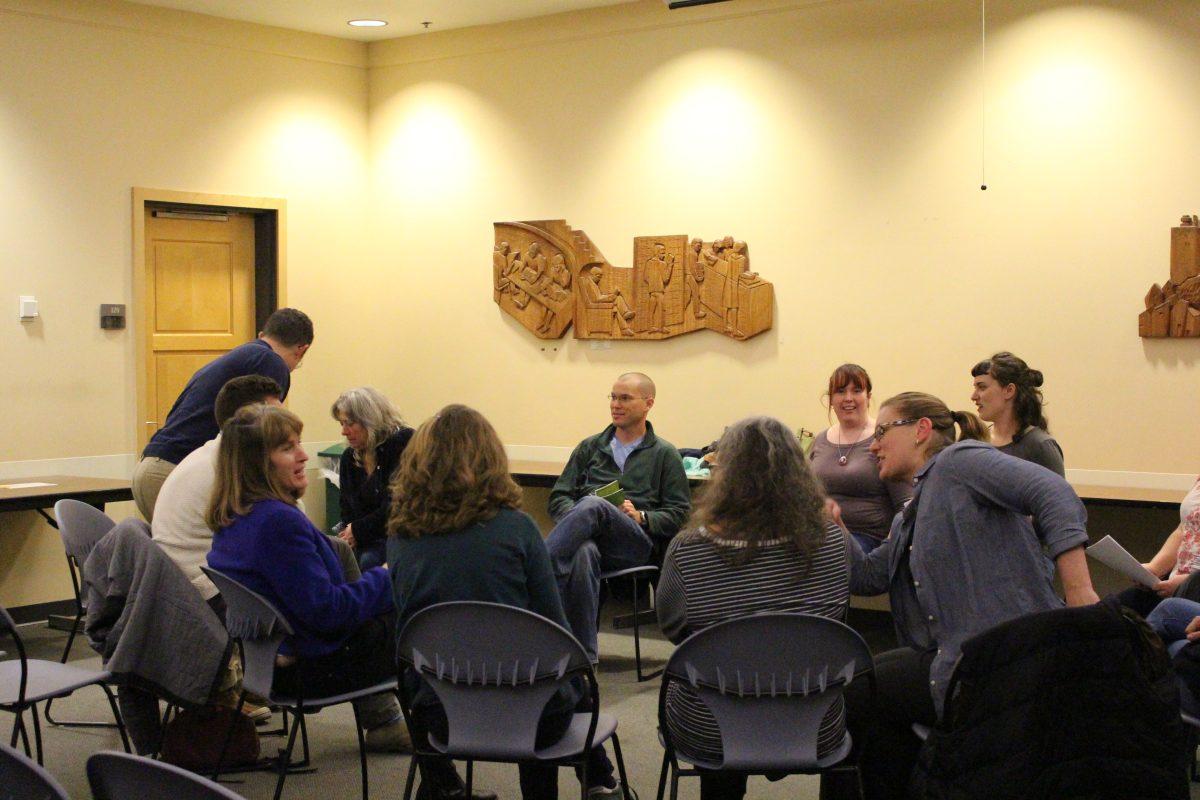By Alexa Salvato & Cecilia Morales
Most parents aren’t prepared for having “the talk” — you know the one, about the birds and the bees — with their kids. However, “Let’s Talk About the Talk,” hosted on October 24 at the Tompkins County Public Library, worked to improve that conversation just a little bit.
Devon Anderson, a sexuality educator and transgender patient advocate at Planned Parenthood, was one of two Planned Parenthood educators at the event. With help from two other educators from the Advocacy Center, a local nonprofit focusing on domestic violence, sexual assault and child sexual abuse, Anderson helped parents with strategies on how to talk about the various aspects of sex with their children.
“Together with the advocacy center and Planned Parenthood, we thought it would be a great idea [to talk about] what is ‘normal,’ [what is] typical to talk about and how to comfortably talk about sexuality through all ages,” she said.
 Sexual education isn’t mandated in New York state, which is why Anderson believes it is important to have these events. According to the Guttmacher Institute, a research and policy organization committed to advancing sexual and reproductive health and rights, the teen pregnancy in New York in 2011 was 58 births per 1,000 women ages 15 to 19. Studies have shown that proper sexual education, as simple as learning about birth control and abstinence, reduces the risk of unwanted teen pregnancy.
Sexual education isn’t mandated in New York state, which is why Anderson believes it is important to have these events. According to the Guttmacher Institute, a research and policy organization committed to advancing sexual and reproductive health and rights, the teen pregnancy in New York in 2011 was 58 births per 1,000 women ages 15 to 19. Studies have shown that proper sexual education, as simple as learning about birth control and abstinence, reduces the risk of unwanted teen pregnancy.
 Steve Savage, event attendee and father of a 5-year-old and 8-year-old, noticed a gap in his daughter’s school curriculum and decided to use this event to fill it.
Steve Savage, event attendee and father of a 5-year-old and 8-year-old, noticed a gap in his daughter’s school curriculum and decided to use this event to fill it.
“We were reviewing the curriculum for my third-grade daughter and noticed that reproduction wasn’t a part of the curriculum,” he said, “so we figured it was time that we started thinking about it.”
After a brief introduction, the parents broke off into smaller groups, dividing based on the age of their children. With about a dozen parents in each group, the educators led them in open discussions about their own sexual education experiences and coached them with different strategies.
Moira Sheehan, whose children are 9 and 11, joined the discussion for parents of older children. She said the event helped her learn a fixed strategy to approach “the talk” with her kids.
“I kind of was doing it just on the fly,” she said. “Now I’ll make more of a conscious effort with it.”
Anderson also emphasized the benefits programs like these can have on family communication.
“Teens and…kids want to know what their parents think about this and they want their parents to be their number one educator in all things, including sexual health and relationships,” she said. “So I think that’s what the biggest benefit is.”







